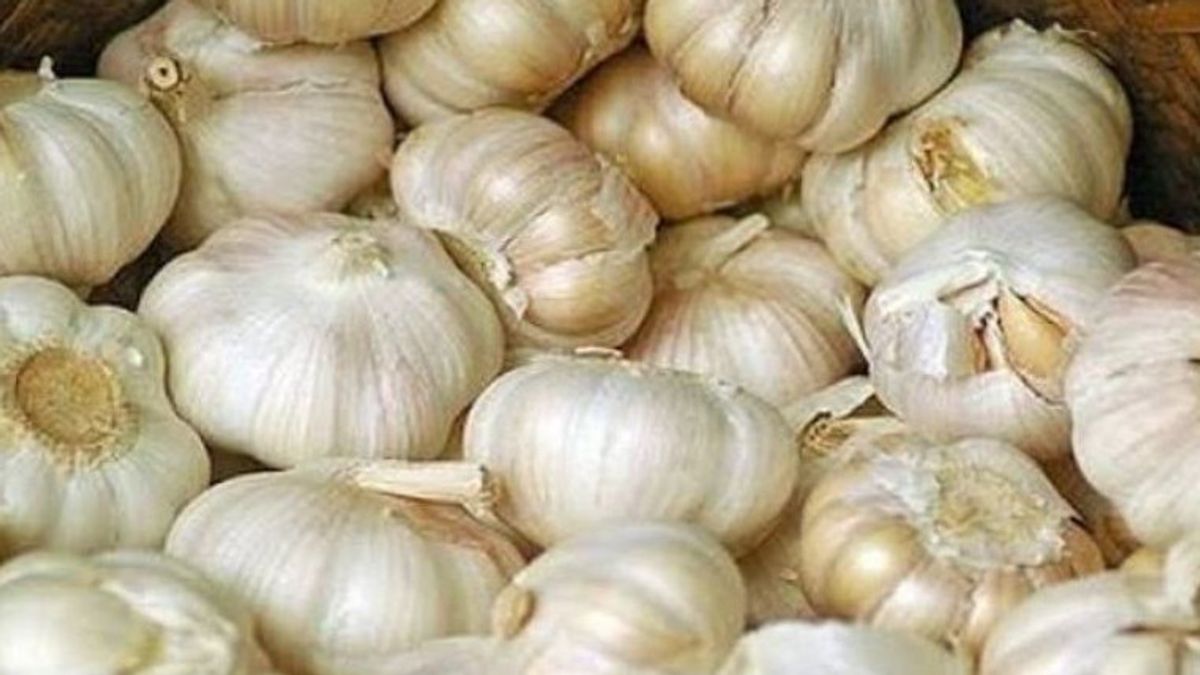JAKARTA - Public policy observer, Trubus Rahadiansyah, stated the need for flexible policies related to imports of horticultural products including garlic to avoid scarcity in the market.
According to him, if the import faucet remains closed, higher inflation could occur because there will be a shortage in the market which will have an impact on market stability.
"So there must be a flexible policy to maintain domestic needs so that they are maintained and safe", he said in a written statement quoted by Antara, Thursday, September 8.
An academic from Trisakti University stated that imports can be done to anticipate changes in the country such as crop failures and other problems.
"But it must be seen that the existing stock in the country if it is running low, it needs to be anticipated so that food insecurity does not occur", said Trubus.
Meanwhile, Professor of the Bogor Agricultural University (IPB) Prof. Dwi Andreas predicts that if the government is late in issuing a permit to import garlic, the price will certainly increase.
SEE ALSO:
This, he continued, can be seen in previous experiences. Currently, the demand for garlic in Indonesia is around 600 thousand tons per year, about 10 percent of the demand, so the rest must be covered by imports.
"If the Ministry of Trade delays imports, it is almost certain that the price of onions will fluctuate. I have been observing since 2017-2019 that if imports are delayed, the price will definitely be above IDR 60,000/kg", he said.
Therefore, Andreas hopes that the Ministry of Trade will not be late in opening the faucet for importing garlic, because the increase in horticultural commodity prices will occur due to the increase in fuel prices.
Economic observer, Poltak Hotradero added that garlic imports are needed to suppress the inflation rate, especially due to the lack of domestic garlic production.
Citing the price table of the National Development Planning Agency and the Ministry of Trade, he said that in the past week, the price of garlic has tended to rise. Meanwhile, Central Bureau of Statistics (BPS) data periodically notes that Garlic is one of the significant contributors to the inflation rate.
"Usually prices go up because stocks are scarce in the market. And since garlic production in Indonesia is very low, only about 10 percent of the demand, the rest must be covered by imports", he said.
The English, Chinese, Japanese, Arabic, and French versions are automatically generated by the AI. So there may still be inaccuracies in translating, please always see Indonesian as our main language. (system supported by DigitalSiber.id)

















